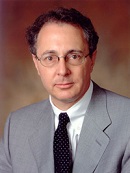 |
| Gilead's Sovaldi--Courtesy of Gilead |
Sovaldi's runaway success looms large over Merck's ($MRK) decision to ante up $3.8 billion to buy Idenix Pharmaceuticals ($IDX), which has three hepatitis C drugs in early stage development. While Gilead's ($GILD) hep C drug is first to market, it has also given an early peek at just how large the market is and how extensive it will be for years to come, an opportunity Merck hopes to exploit by acquiring more hep C firepower.
Merck, which has its own promising drug combo in the works for treating hep C, said it wants Cambridge, MA-based Idenix to round out its offerings in the category. As RBC Capital Markets analyst Michael Yee pointed out to clients today, the Idenix drugs will not be to market for several years. But he also said the Merck decision validates just how extensive that market is.
Yee said he spoke with Merck R&D chief Roger Perlmutter last week. Perlmutter "suggested to us the hep C market is significant over the long run and the system cannot treat millions of patients over the next few years, so these players all agree there is a significant opportunity for a long time."
Government estimates put the number of patients with hep C in the U.S. at about 3.2 million. But worldwide, an estimated 150 million patients need treatment. And Gilead and Merck are certainly not the only drugmakers with big plans for hepatitis C, a field that is being transformed by oral, interferon-free therapies. AbbVie ($ABBV) and Bristol-Myers Squibb ($BMY) are also getting ready to launch rival products.
 |
| Roger Perlmutter |
Merck CEO Ken Frazier has said it will be those companies that have the best drugs that will benefit over the long haul. Perlmutter said in a statement today, "Idenix's investigational hepatitis C candidates complement our promising therapies in development and will help advance our work to develop a highly effective, once-daily, all oral, ribavirin-free, pan-genotypic regimen that has a duration of treatment as short as possible for millions of patients in need around the world."
In Yee's mind, Gilead's Sovaldi not only was first to market but also has the potential to capture 50% of that global market. Its ability to cure patients of the disease in 12 weeks, preventing the need for liver transplants in some cases, has made it a coveted drug, no matter its $84,000 treatment cost in the U.S. And he thinks that Merck's decision to pay $3.8 billion for Idenix suggests that Merck is not sure its current offering can match Sovaldi's ability to treat different subtypes and cure the disease as quickly as Gilead's drug. The buyout, Yee said in his research, suggests "Merck currently does not have a pan-genotypic regimen to go after GT2/3 and a G1 regimen that can get down to 8 weeks like Gilead has."
- here's the announcement
- get more from Reuters